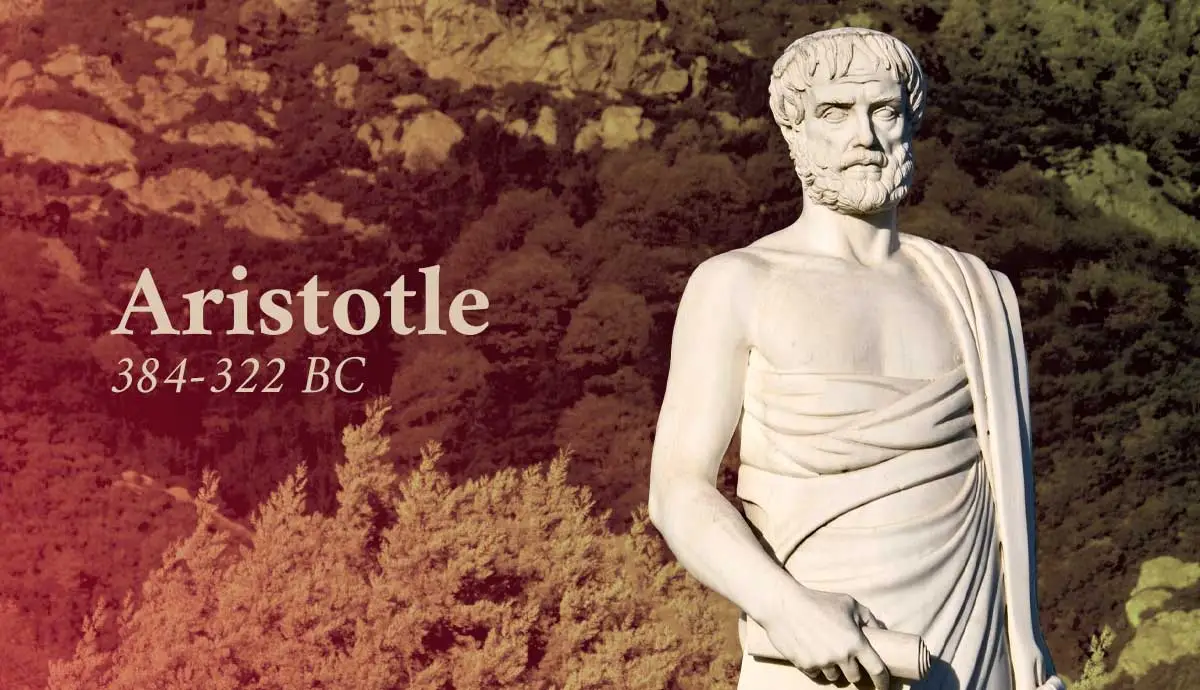Pareeshe Fatima
Life and Works:
Aristotle (384-322 BCE), a towering figure in the history of Western philosophy, was born in Stagira, Greece. He studied under Plato at the Academy in Athens for twenty years, absorbing his mentor’s ideas on logic, mathematics, and metaphysics. However, Aristotle ultimately developed his own distinct philosophical perspective, characterized by his emphasis on empirical observation, reason, and logic.
Leaving the Academy, Aristotle embarked on a scholarly journey, traveling to various parts of Greece and Asia Minor. During this period, he conducted extensive research on biology, zoology, and botany, accumulating a vast amount of empirical data. He later served as the tutor of Alexander the Great, shaping the future emperor’s intellectual and philosophical outlook.
Upon returning to Athens in 335 BCE, Aristotle established his own school, the Lyceum. This institution became a center of learning and inquiry, attracting students from across the Greek world. Aristotle’s teachings encompassed a wide range of subjects, including logic, ethics, politics, physics, biology, and metaphysics. His prolific writing career resulted in a vast body of work, encompassing over 200 treatises on diverse topics.
Please, subscribe to the YouTube channel of republicpolicy.com
Philosophy and Legacy:
Aristotle’s philosophy emphasized reason and logic as the primary tools for understanding the world. He believed that knowledge is acquired through sensory experience and refined through logical analysis. His emphasis on empirical observation and scientific methodology laid the foundation for the development of modern science.
Aristotle’s work in logic laid the groundwork for formal logic systems and syllogistic reasoning, which remain fundamental tools in philosophy, law, and mathematics. His ethical theories, which focused on virtue ethics and the pursuit of happiness through virtuous living, continue to be studied and debated today.
Aristotle’s political philosophy, particularly his ideas on justice, citizenship, and the ideal form of government, have had a profound influence on Western political thought. His concept of the “natural law” provided a philosophical foundation for individual rights and limited government.
Modern Influence:
Aristotle’s philosophy continues to be studied and debated by scholars around the world. His influence on the development of Western intellectual thought is undeniable. His contributions to science, logic, ethics, and politics remain relevant and influential in the modern world.
In the realm of scientific inquiry, his emphasis on empirical observation and experimentation is echoed in the modern scientific method. His work in logic continues to be studied in universities and used in various fields, including law, mathematics, and computer science.
Aristotle’s ethical theories, emphasizing the pursuit of virtue and happiness, resonate with contemporary debates on ethics and human flourishing. His ideas on justice and the rule of law continue to inform discussions about political systems and individual rights.
In conclusion, Aristotle’s life and work have left an indelible mark on the history of human thought. His contributions to diverse fields have shaped our understanding of the world and continue to inspire and challenge us today. Through his emphasis on reason, logic, and empirical observation, Aristotle laid the foundation for modern science and paved the way for intellectual progress in various disciplines. His enduring influence is a testament to the power and enduring relevance of his philosophical thought.
Please, subscribe to the monthly magazines of republicpolicy.com
















